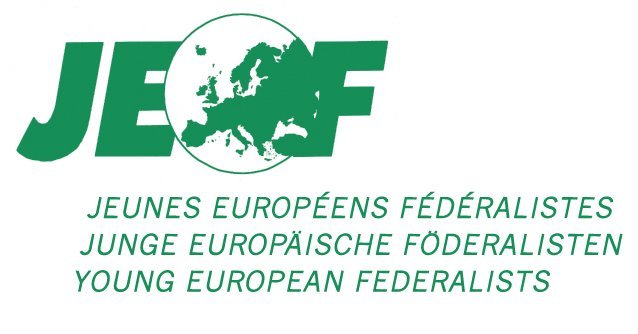Nevertheless, JEF-Europe deplores the decision of the British government not to take part in this progressive step in European integration and call it for joining later, but at least now for stepping aside, not blocking the fiscal pact any longer. JEF Europe deplores also the attempts of British to influence the other states not ratifying the New Treaty yet and blocking the progress of the economic integration of the European Union.
“As often, the response goes in the right direction but is insufficient to address the present challenges decisively” states Pauline Gessant, President of JEF-Europe. “We need an economic plan for sustainable development and social welfare to face the current crisis including the launch of eurobonds to fund major European projects and a strong legal framework to support them, a bigger budget based on own resources, the harmonisation of fiscal and accounting standards as well as common minimum social security standards, combined with a stronger development of the common market to overcome competition for labour and enterprises between the member states”.
Moreover, JEF-Europe regrets strongly the old-style “behind-closed-doors” negotiations and the intergovernmental supremacy of the European Council. The European unification process must be discussed in a transparent and democratic way including a parliamentary approach to create a public debate on the decisions to be taken. No solution will ever be sustainable without the true involvement of civil society. Hence, intergovernmental deals as the current one lack the democratic legitimacy to persist in the long term.
Furthermore, the new treaty must involve the European institutions, including the European Commission and the European Parliament. A system in which Member States are in the same time judged and jury cannot work and is deeply undemocratic. The European Commission should ensure the respect of general rules and act as a healthy and economically responsible Government. It is the role of the European Commission as the executive branch of the European institutions and not of the Council to play the role of a European Economic Government. The European Commission is the only political actor able to perform coherent economic governance through the setting up of a European Ministry of Economic and Financial affairs accountable, being part of the Commission, to the Parliament. “A treaty focusing on the European Council as the Presidium of the Eurozone, outside of the Community institutions, would be a regression. Community institutions must remain central. We’ll watch the process and the content of the intergovernmental agreement to be signed in March and call strongly from a shift from the intergovernmental perspective to a federalist EU integration,” concludes Pauline Gessant, President of JEF-Europe.


1. On 23 December 2011 at 10:50, by charles Replying to: After the European Council, JEF-Europe calls for a shift from the intergovernmental perspective to a federalist EU integration
Replying to: After the European Council, JEF-Europe calls for a shift from the intergovernmental perspective to a federalist EU integration
JEF can deplore British actions all it likes, but what difference will that make? The French, who believe the EU is their creation and somehow it belongs to them, have no desire for a Federal Europe. The Germans quite rightly no longer feel they have to be the “Good Guys” and don’t want a Federal Europe. Probably only Belgium, mostly dysfunctionally governed for the past few years and their Verhofstadt feel that Federalism is a solution, plus a few delusional individuals here and there.
2. On 23 December 2011 at 15:07, by ? Replying to: After the European Council, JEF-Europe calls for a shift from the intergovernmental perspective to a federalist EU integration
Replying to: After the European Council, JEF-Europe calls for a shift from the intergovernmental perspective to a federalist EU integration
@Charles : JEF is a political organisation, it is therefore definding its views. A pertt of the EU is already working according to federal principles. The present crisis demonstrates the need to move further forward on that road. When you mention “The French” I guess you think of its political elité. Most citizens are aware that we need a European political Union but also that such a Union cannot exist if it is not democratic. Only federalism allows to do both.
The Britsih government is trying to slow down that progress because of an ideologicalk romantic and passeist stance. Other governements arer usually more realists, hence will make the moves that are needed fot the Union, therefore will g*have to make progress towards federalism.
Follow the comments: |
|
